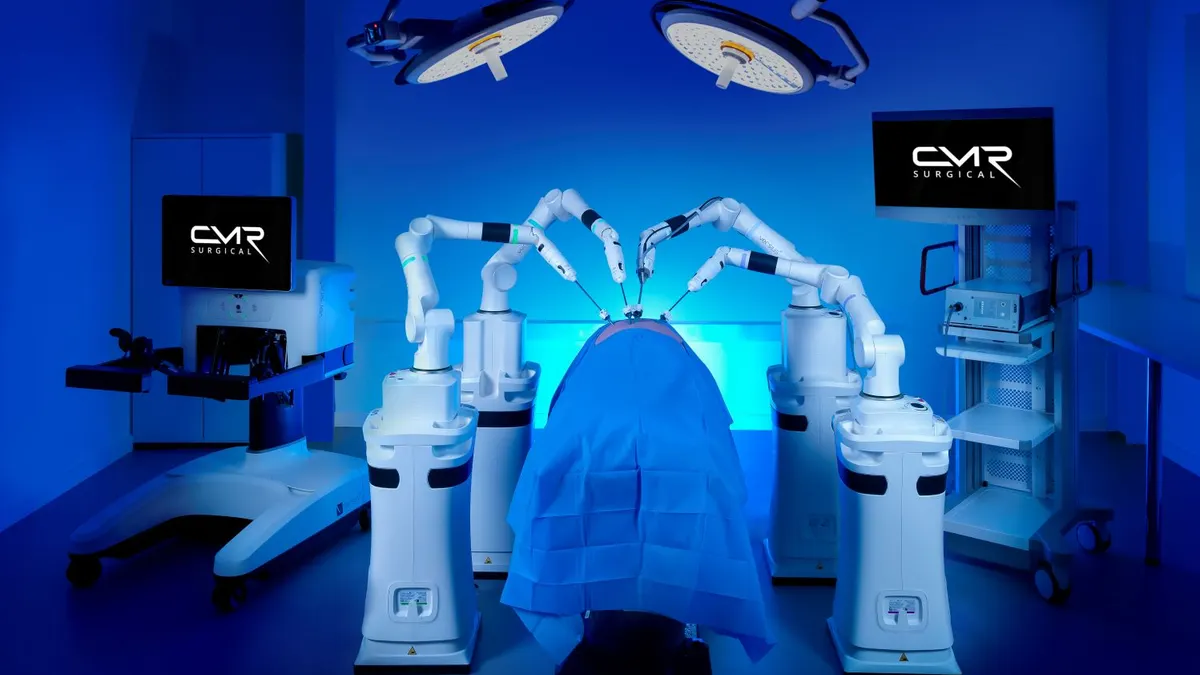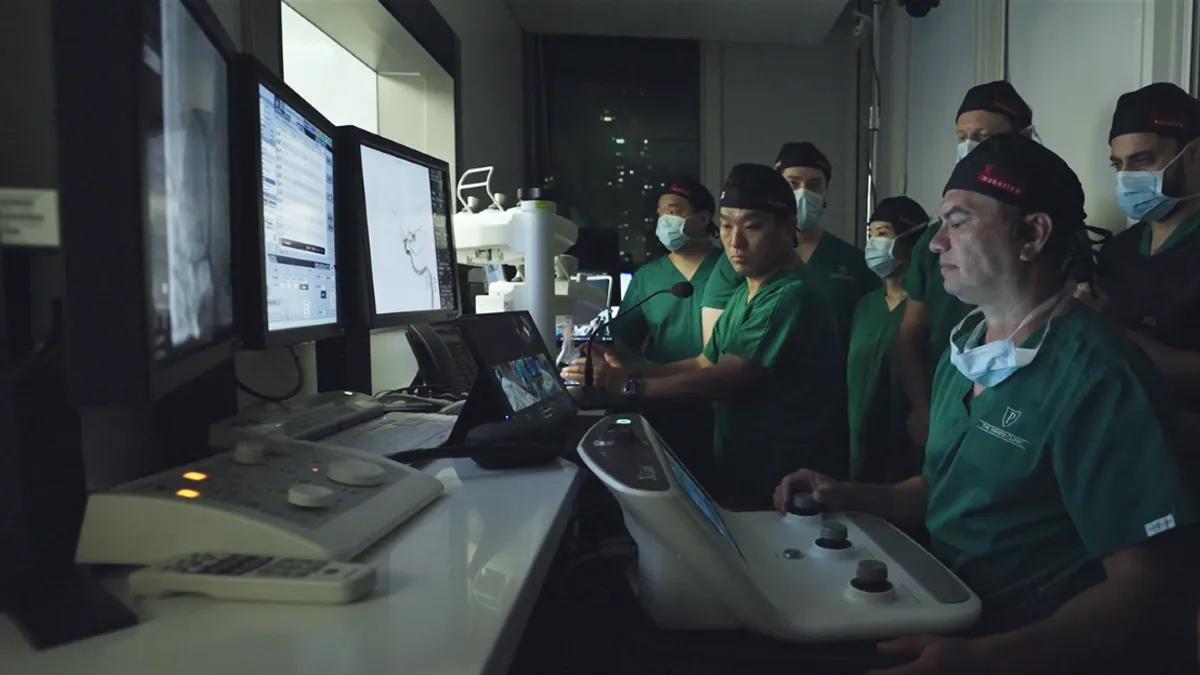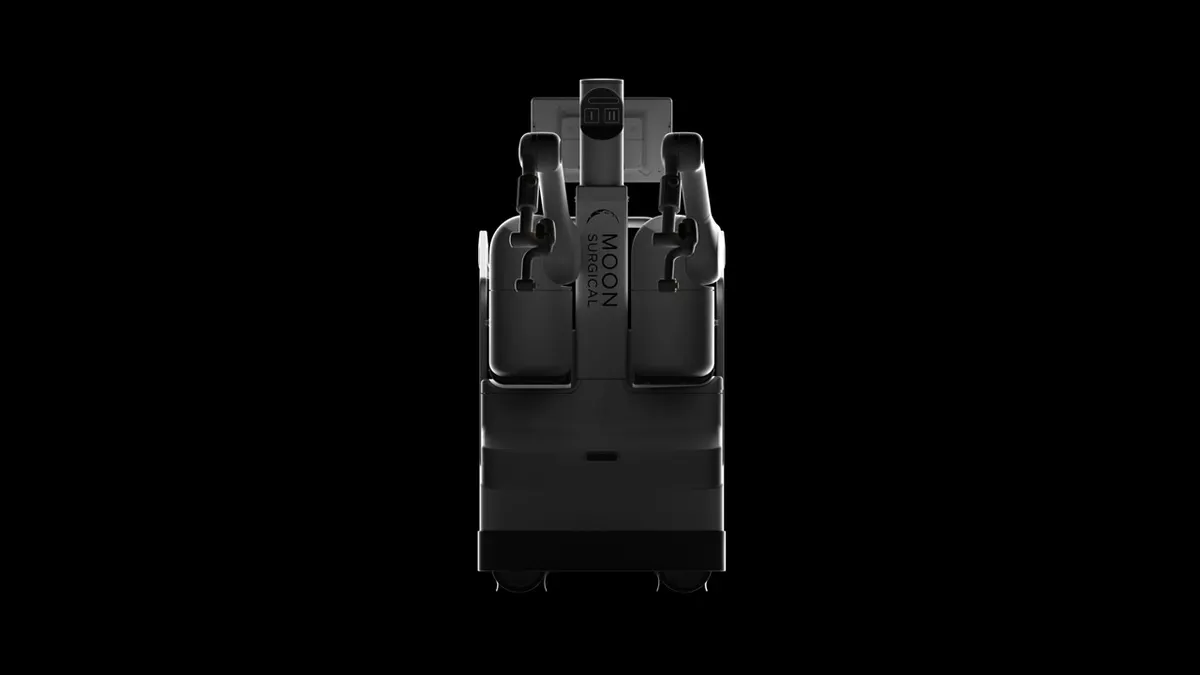An HHS Office of Inspector General advisory opinion posted this week may signal the department's openness to new types of arrangements historically limited by the Anti Kickback Statute. The opinion allows a device manufacturer to offer hospitals a warranty for a suite of three products aimed at reducing readmissions after joint surgery reimbursed by a bundled Medicare payment.
Under the proposed agreement, if a patient treated with the unnamed company's total knee or total hip implant, wound therapy system and antimicrobial dressing during surgery is readmitted to the same hospital within 90 days due to an infection of the knee or hip, the company would refund the hospital for the cost of all three products.
To qualify for the refund, the readmission must result from the failure of one of the three products to "perform as expected."
Ron Lebow, a health attorney at Greenspoon Marder, tells MedTech Dive that the idea is unique because it aligns incentives between the device manufacturers, hospitals and the government to reduce costs to the healthcare system by reducing infection readmissions.
"The advisory opinion is saying 'we're going to trust the hospitals to make decisions about outcomes, because they get paid based on outcomes,'" Lebow said. "When people attribute this altruistic notion to hospital executives, I snicker, but the reality is that there are payment incentives that are separate from this that do sort of say 'choose products that are going to reduce readmissions.'"
Traditionally, the AKS would make it illegal to "induce or reward referrals of items or services reimbursable by a federal health care program," at risk of a felony punishable by a fine up to $100,000 and/or 10 years in prison. Although there is a safe harbor for warranties, it only applies to one item, not a suite of items.
The Office of Inspector General appears to be satisfied the agreement in question would pose a "sufficiently low risk of fraud and abuse" under the AKS, but it notes that "a warranty arrangement involving a bundle of items that were separately reimbursable could result in overutilization of one or more items included in the bundle and could unnecessarily increase costs."
One industry attorney tells MedTech Dive that it is encouraging to see OIG see the benefit of "value-based arrangements and the lower risk, if properly structured, that they present."
In the opinion, Robert DeConti, HHS OIG assistant inspector general for legal affairs, highlighted multiple reasons the proposed arrangement is permissible:
- Medicare currently pays hospitals a single bundled payment for an inpatient stay for a joint replacement surgery and none of the products in the suite are separately reimbursable by Medicare. DeConti writes that because hospitals cannot bill for each product they are incentivized to be discerning when electing what combination of products "results in both the best value and the best clinical outcomes for their patients, therefore reducing the risk of overutilization."
- The device manufacturer agreed to meet all obligations as a seller under the warranties safe harbor, and to report when a reduced payment is made to a hospital.
- The hospital would ensure that surgeons would remain in charge of determining if a specific medical device, "including each of the three products, is medically necessary and clinically appropriate for a particular patient."
- He notes that if the warranty program works as intended, it will be an incentive to reduce expensive readmissions, ultimately reducing costs to patients and federal health programs.
- The device manufacturer would not be able to pay remuneration to the hospital other than the hospital's aggregate purchase price for the three products, and the program would not contain exclusivity requirements, quotas, minimums or other eligibility criteria. The hospital would also not be required to encourage or require the use of the suite of products.
OIG noted that it may not be possible to tie a readmission due to infection to one of the three products "with medical certainty," but pointed to the assertion by the manufacturer that the products, in combination, are designed to reduce infections.
"We therefore believe that the Warranty Program is reasonably related to the use of the Product Suite and that, in the absence of other obvious causes of an infection or required revision, a hospital could make a valid claim that the infection or required revision resulted from the failure of the Product Suite to perform as expected. Under these circumstances, we are reluctant to chill innovative and potentially beneficial arrangements," DeConti wrote.
Although the advisory opinion is limited in scope to the specific arrangement in question, Lebow says that it could be indicative of future value based arrangements.
"I envision future advisory opinions or maybe even governmental regulatory guidance on bundled warranties on what things you can and can't bundle. This could be a boon for healthcare attorneys whose hospital CEO and in-house counsel call them and say 'hey, what can we approach manufacturers with and ask them for warranties, we want to decide what we can bundle together,'" Lebow said.
The advisory opinion comes as HHS is actively listening to stakeholders on how to amend the AKS and Stark Law to encourage novel value-based arrangements.
Medical devices are often limited by the AKS, Joe Grogan, associate director of health programs at the Office of Management and Budget, told reporters Thursday. He used the example of the inability of manufacturers to give an iPhone or technology to a physician as part of a medical device sale to allow them to monitor a medical device given to a patient for effectiveness to cut down on the number of necessary doctor visits or adverse events.
"The Anti Kickback stuff, HHS has some really good people working on this, some very smart people. The [HHS] Deputy Secretary Eric Hargan has taken this on himself, and he's brought on a lot of good people in from the outside to give him advice on this, as well as a great team of civil servants and politicals inside. They have a very high emphasis on getting this policy right," Grogan said.
Comments on the HHS OIG request for information on potential ideas to change the AKS are due Oct. 26.




















